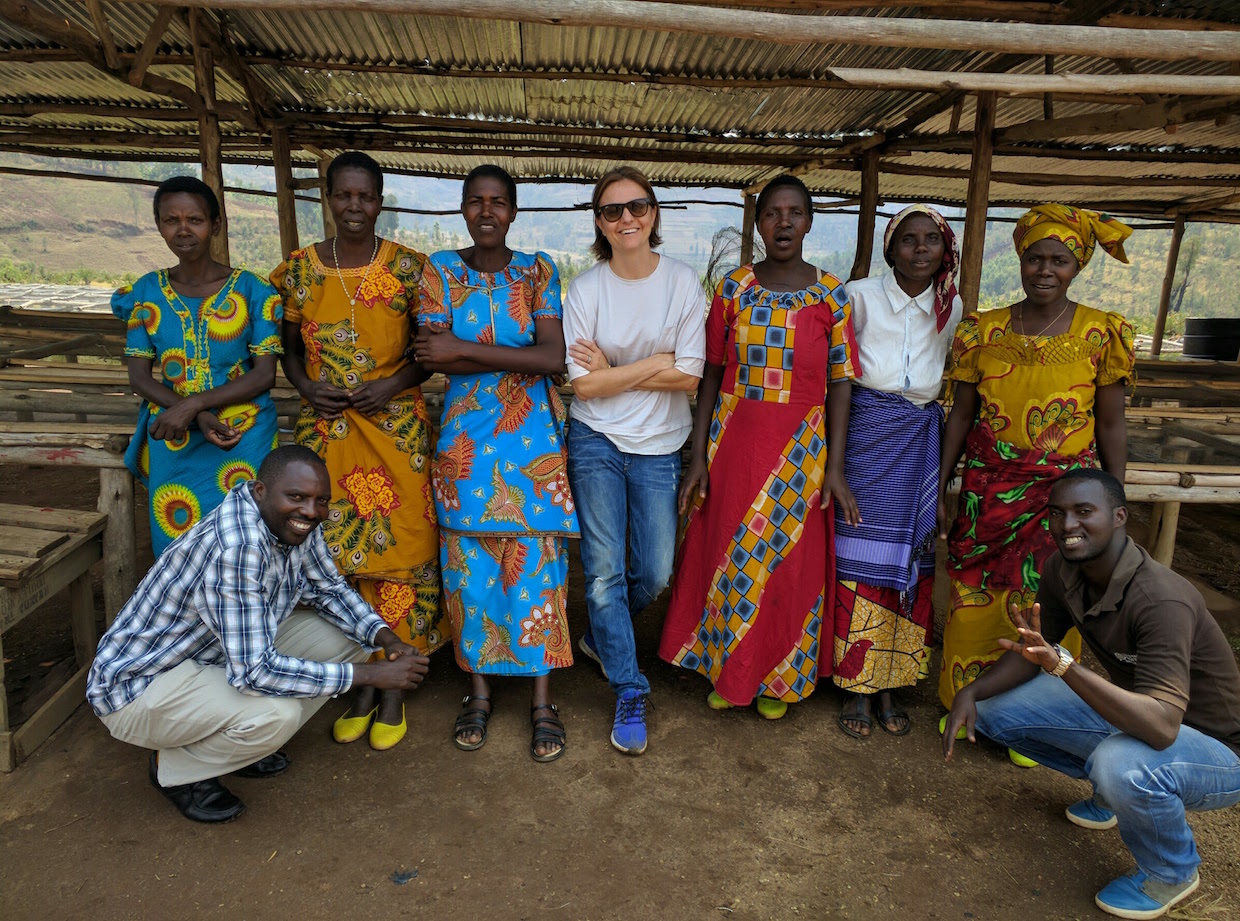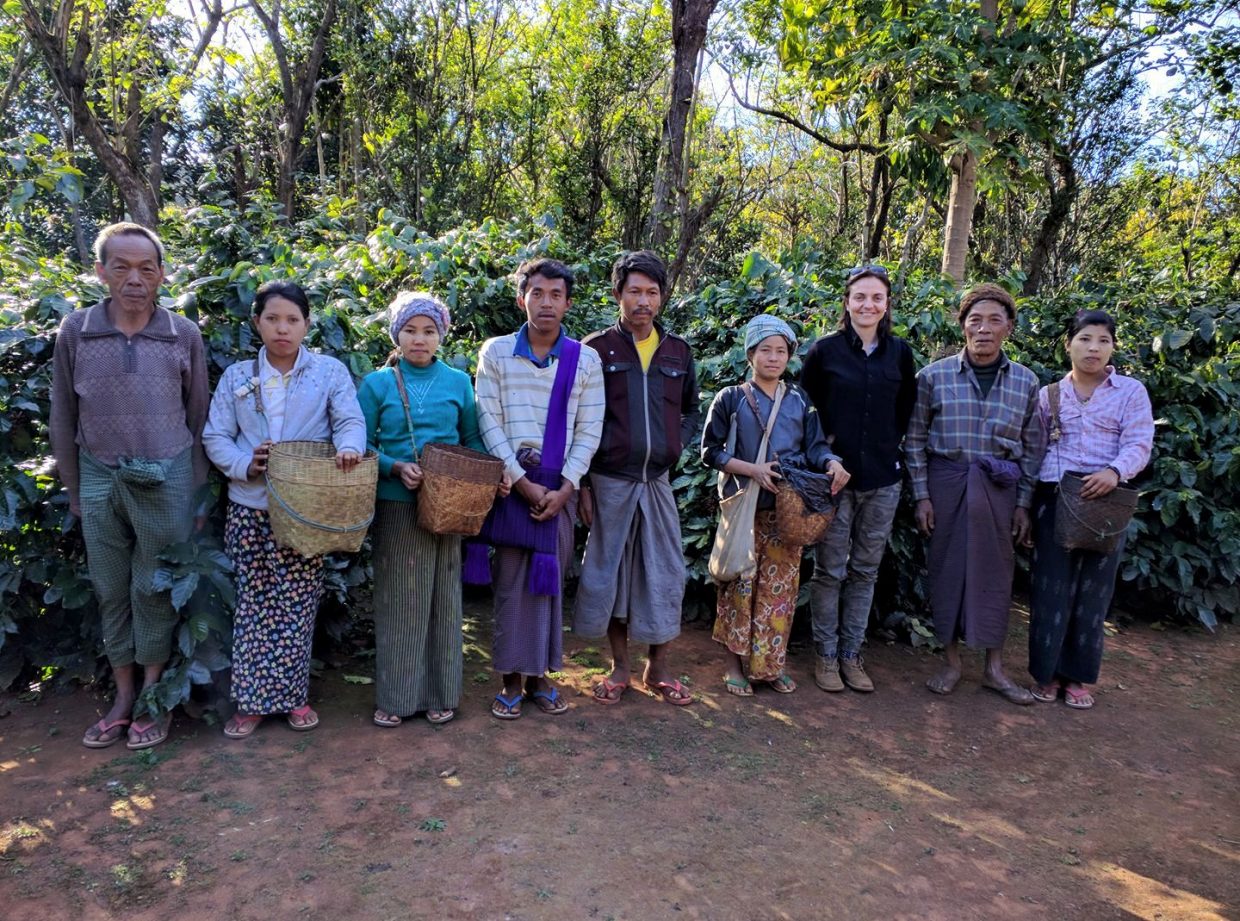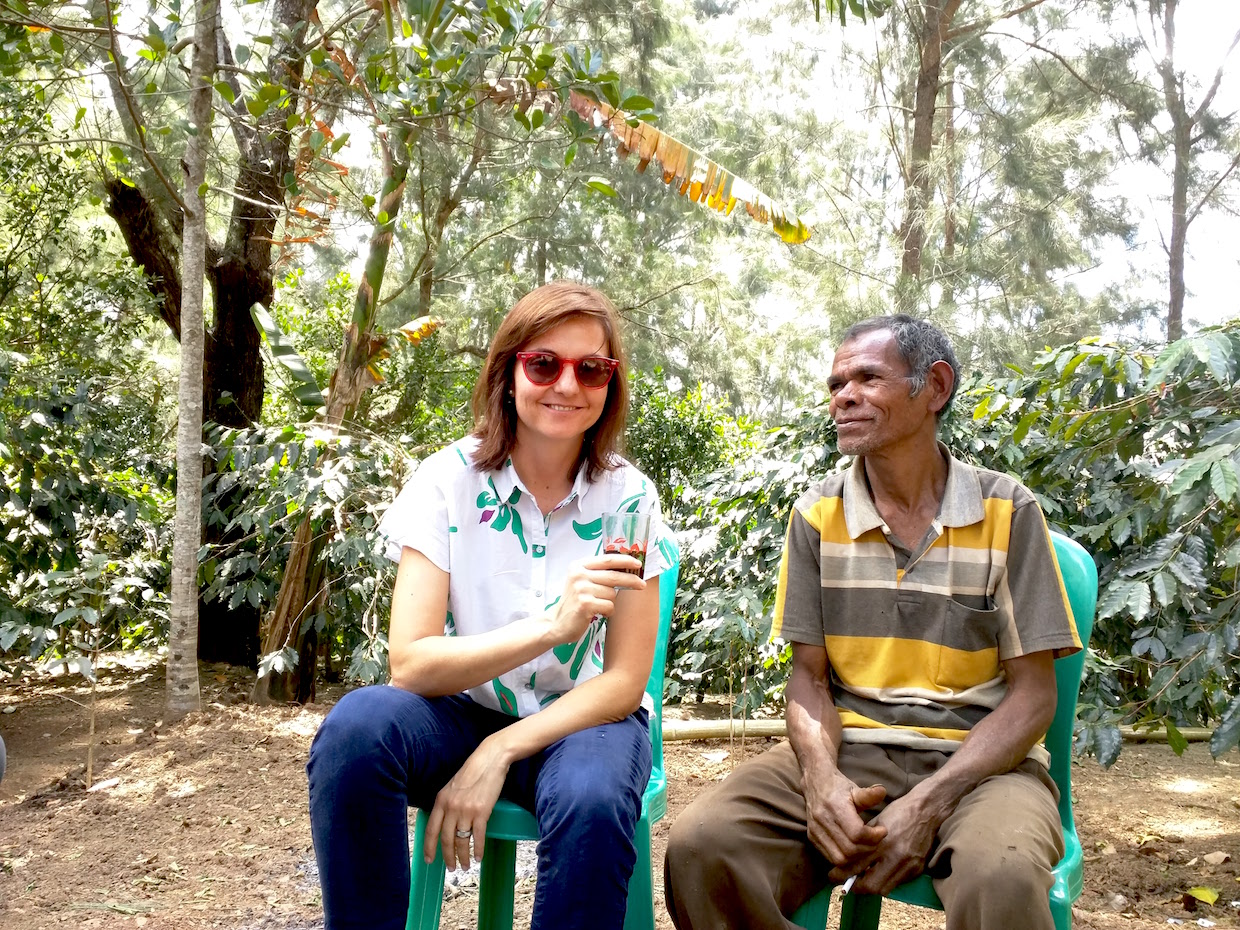Over the past three years, one of the prevailing patterns within the specialty coffee industry has been of consolidation, with investors and corporations such as JAB Holding Company, Nestlé, and others acquiring specialty coffee brands at a rate not seen before.
These acquisitions have allowed smaller companies to expand their reach, distribution, and presence in more coffee markets around the world, thanks to the immediate capital injections that come as a result.
“For these companies, this foreign capital investment will offer them many benefits, including increased access to capital, technology, and markets,” Sara Morrocchi, an independent consultant with Vuna Origin, based in Amsterdam, The Netherlands, told Daily Coffee News. “What is less clear is whether the greater supply chain ecosystem around these companies will also benefit.”
The former global supply chain director for importer Sustainable Harvest before launching her consultancy, Morrocchi spoke about the impact of foreign capital investment and mergers on the coffee supply chain in June of 2016 at Re:co Symposium in Dublin. At the time, she identified the elephant in the room as being the uncertainty around the effect that recent merges and acquisitions would have on the coffee growers, exporters, importers, and the rest of the industry.
One of the key aspects of her talk was an exploration of the concept of “net 180,” which involves extended payment terms for importers. According to Morrocchi, net 180 is the result of increased pressure brought about by these mergers and acquisitions, essentially created in order for companies receiving investment to raise more capital, and the potential effects of it are enormous.
“Let’s say you are a small roaster buying some microlots from your importer,” said Morrocchi. “They might give you payment terms of 15 days, or net 15. Or if you prefer better terms, instead of a bank transfer, you can swipe your credit card and automatically get net 30 terms for your coffee. These periods of 15 days or 30 days for payment are what we typically see in business, and coffee has been no exception.”
In recent years, however, that period has increased by six to 12 times the amount. According to Morrocchi, the importers who are selling coffee to these roasters are now getting paid on net 180 terms. She added, “There is knowledge that some companies have increased their payment terms to net 230.”
How these new payment terms will impact the industry is still not fully clear. We asked Morrocchi how the landscape has changed since two years ago, from her perspective, and how these mergers and acquisitions have — or will continue to — impact the coffee market at large.
“This is a bit of a grey area, and it will depend heavily on the company and the industry,” said Morrocchi. “So far, all the companies that have merged and been acquired have made similar claims about their practices going forward: One, they will continue to operate independently; two, they will continue to source independently; and three, they will continue to manage their day-to-day operations independently.”
Morrocchi said that there is no reason to believe this is disingenuous, and that she is not seeing any indications so far that would suggest companies have replaced existing relationships in favor of less expensive, lower-quality coffee.
“There is no evidence that prices paid to producers have significantly shrunk following acquisition,” Morrocchi said. “It all seems to lead to the common understanding that these companies will now be finally empowered to grow and extend their reach and influence in markets that were untapped before. They will be bigger and more prosperous, and they will bring with them all the suppliers they have worked with for all these years, since they claim that long-term, sustainable relationships is what drives their business models.”
We asked Morrocchi more about her perspectives on consolidation and its known and potential effects on the specialty coffee industry.
Lily Kubota: Have you observed any changes in the industry since you spoke in 2016, specifically in regard to the financial realities?
Sara Morrocchi: Market consolidation is continuing, and it is now addressing importers, too. Vertical integration is more common than not, with importers, for example, setting up dry mills at origins. Exporters are setting up importing companies in consuming markets. Those who have the financial muscle will attempt to carve out a better/bigger share of the market for themselves. There is nothing wrong with that. In fact, it can be beneficial to the supply chain and at times necessary for survival.
LK: How has consolidation affected importers focused on the specialty market?
SM: This is tough question — I think their bargaining power is somewhat limited, and would argue that it has actually diminished over time due to increased market consolidation. Roasting companies align their sourcing practices and payment terms, while their bargaining power increases. This is my perception, but I am happy to proven wrong on this.
However, importers still share relationships with producer organizations and together have the chance to create better or new opportunities within their supply chain. I know importers who have established capacity-building programs for their own supply chain specifically designed to strengthen know-how and expertise at origin.
LK: How are producers adapting to the new realities of the coffee trade? Are you seeing improvements at the farm level with regard to financial security, and control over pricing and terms?
SM: I have not seen major changes in the way producers market their coffees. I think producer organizations adapt to market needs and deliver accordingly. Overall, I believe they are still price takers, not price givers. To understand whether coffee is still a viable economic opportunity, one needs to focus on what other activities or areas producer organizations are focusing on. It is undeniable, for example, that many organizations are now switching part of the production to cocoa — especially at lower altitudes. Cocoa prices aren’t encouraging, per se, but with low coffee prices and climate change, switching to other crops seem attractive to many.
LK: What are some of the challenges and opportunities that the industry faces at this stage, specifically in terms of ensuring that each player in the chain is fairly compensated for their efforts?
SM: There is little we can do in terms of pricing. We have no control over the C–market price and we know that in consuming markets, despite what we may expect, the price war over roasted coffee bags is real. So, not wanting to dismiss what can be done downstream in the coffee supply chain — or worse, giving them a free pass — I’d rather focus on what can be done at origin to make producer organizations more competitive, more liquid, and better able to service their members. In respect to this, focusing on price risk management is important. As an industry, we share more on best practices around physical strategies (buying and selling green coffee) and how it can combine with hedging strategies (covering the risk against the futures market).
There are ways to always have your break-even point price covered while using the differentials to increase margins. There are ways to minimize the costs of options so that producer organizations can protect their prices against adverse market movements, but also take advantage of positive market movements. The challenge to implement this is simply lack of knowledge and very limited access to loan capital to purchase the tools before or during the harvest cycle. Local banks and social lenders are still not providing these products, but I think that this may change in near future — or at least this is my hope.
LK: What does “sustainability” mean to you with regard to the coffee industry?
SM: It may come across as an answer that does not address all of what sustainability entails, but my personal definition of sustainability is “profitability.” This encompasses all levels of the chain. Sustainability should be seen as a way to either save on operating expenses or increase revenues — regardless of whether it is a farm or a cafe. Of course, the issue of profitability feels more daunting to me at origin, and I naturally lean towards trying to figure out this aspect.
LK: What are you up to now? What kinds of projects are you involved in as a consultant?
SM: Now that I have joined the ranks of coffee consultants, my focus has shifted quite a bit. I tried as much as possible to create my own niche within the industry in order to provide additional skills and expertise in areas where I saw there was still a lot to be done. Currently, I am working in price risk management (PRM) for smallholder producer organizations. This is an area where we need more capacity building and access to tools and financial resources. There is a tendency to depend on financial consultants who “get the job done so you don’t have to do it” or on importers who, of course, can only cover the coffee they are purchasing. The reality is that, as an industry, we still haven’t figured out how to develop a formal PRM curricula or how to finance tools such as options. I am working with a few organizations to make sure we reverse this.
I am also working in a few origins — Myanmar and Timor Leste — which, despite their very different history, have both set out to revive and improve their coffee sector and enter the specialty coffee market. I am supporting in the creation of a sector strategy, develop new specialty coffee production protocols, and establish small holder producer organizations.
Three Questions with Sara Morrochi
What inspires you most about coffee?
I think the most inspiring aspect of specialty coffee is the long chain of human relationships it can create. I can say I have relationships that extend all over the globe, and I have been blessed with friendships around the world. This is quite priceless to me. We often say drinking coffee is a social activity, but I think it extends to the entire specialty coffee industry — a highly social and relationship-oriented industry. Lots of good folks work in coffee.
What troubles you most about coffee?
Prices. Simple as that. We fail coffee producers on a daily basis. Either by offering low prices, or by failing to share the same financial tools that importers and roasters use to keep their business afloat. The knowledge gap and the opportunity gap is an ocean.
What would you be doing if it weren’t for coffee?
I would probably still be in working in development. My personal drive is to work towards social and economic justice, and coffee was a means to my “higher goal” — not the goal, per se.
Lily Kubota
Lily Kubota is the managing editor and digital content manager for Roast Magazine. She is based in Southern California.
Comment
2 Comments
Comments are closed.











I read your article with allot of satisfaction. I am a farmer myself. I own 240 acres coffee of understand in depth regarding the marketing chain and pricing received by each player. Prior to being a planter I was involved in Post Harvest Research and Quality Control in Coffee Processing as HOD. Also participated in international promotion attending to Coffee Symptoms.
This work that Sera Morrocchi is doing is required here in Papua New Guinea.
Sincerely
Anus Kuri
I am a lawyer and work with exporters understanding global issues like price is important